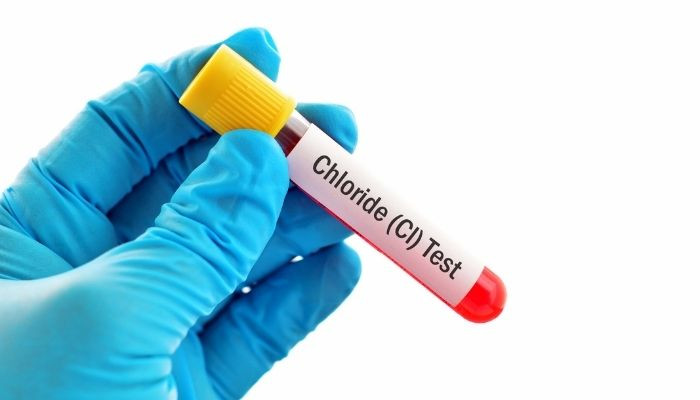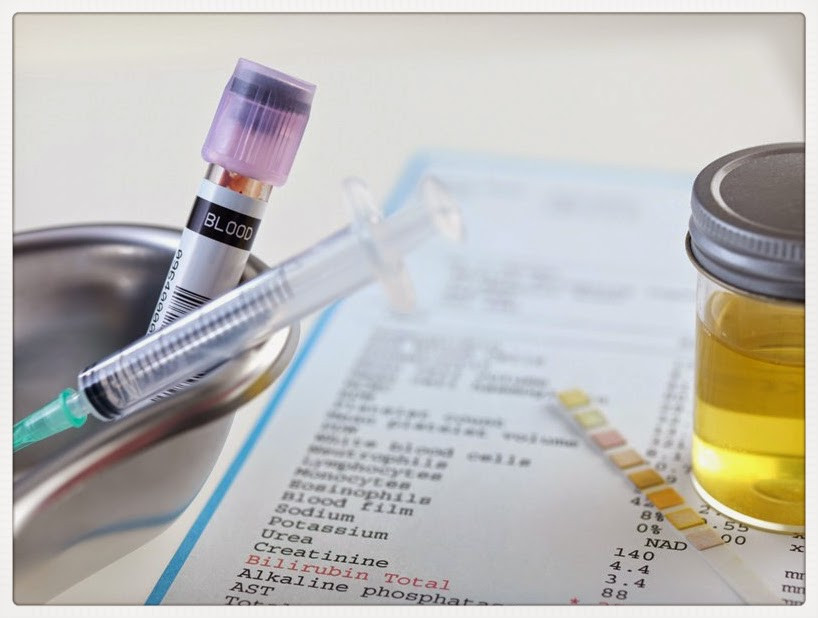Definition
A urine chloride test is a diagnostic procedure used to measure chloride levels in the urine. Chloride is an essential electrolyte, an electrically charged mineral, that plays a vital role in maintaining fluid balance and regulating the acid-base equilibrium (pH) in the body.
Chloride levels can be assessed through both blood and urine tests. This test helps doctors identify potential issues with the lungs, kidneys, or other organs responsible for regulating the body's acid-base balance.
The body strives to maintain a balanced pH level. However, certain conditions may cause an imbalance, such as when the body becomes too alkaline, a condition known as metabolic alkalosis.
Metabolic alkalosis can occur due to factors like the use of diuretics (medications that increase urination), vomiting, or after gastric lavage (stomach washing). If metabolic alkalosis is suspected, a urine chloride test can provide additional information for the doctor to better understand the condition.
Indication
This test is typically performed in various conditions, including:
-
To help diagnose fluid balance disorders if there are symptoms or clinical signs suggesting such an issue.
-
To evaluate the balance of acid and base chemicals in the body.
Additionally, a doctor may recommend a urine chloride test if you exhibit symptoms of metabolic alkalosis, such as:
-
Difficulty thinking or confusion
-
Seizures
-
Numbness or a sensation of being pricked by needles
-
Muscle cramps and stiffness
Contraindication
There are no contraindications or conditions that would prevent someone from undergoing this test.
Preparation Before the Test
No special preparation is required before performing a urine chloride test. The test can be done while not fasting. However, it is advised to consult with a doctor before the test, as certain conditions or medications can interfere with the test results, leading to inaccurate measurements.
Some medications that may affect the results of this test include:
-
Corticosteroids (used to reduce inflammation)
-
NSAIDs (Nonsteroidal Anti-Inflammatory Drugs) like ibuprofen and aspirin
-
Diuretics (used to remove excess water and salt through urine)
-
Acetazolamide (a medication used to treat glaucoma)
Test Procedure
The urine chloride test can be performed using either a random urine test or a 24-hour urine test, depending on the doctor’s recommendation based on the patient's condition or diagnosis.
In a random urine test, you will be asked to urinate into a special container. The healthcare provider will give instructions on how to collect and store the sample properly. Once collected, the sample can be submitted for testing.
For a 24-hour urine test, you will be asked to collect all of your urine over a 24-hour period in a special container. The first urine of the morning does not need to be collected, but every subsequent urination during the next 24 hours should be collected. After 24 hours, the sample can be submitted for testing.
Here are the steps for collecting a urine sample:
-
Thoroughly wash your hands.
-
Clean the genital area with a cleaning tissue provided by the healthcare provider or doctor.
-
Collect all urine in the provided container during urination, ensuring that you do not touch the inside of the container to avoid contamination.
Normal and Abnormal Values
In adults, the normal range for urine chloride with the 24-hour urine test method is between 110-250 mEq/24 hours. The chloride levels in urine can vary depending on factors such as water and salt intake, as well as individual characteristics like age, gender, medical history, and the method of testing.
It’s important to note that each laboratory may report slightly different reference ranges due to variations in the equipment or techniques used.
Results and Recommendations (Follow-up Tests)
Low Chloride Levels
If your urine chloride test results show low values (less than 110 mEq/24 hours), you should consult a doctor. The doctor will likely suggest changes to your diet and lifestyle to help bring your chloride levels back to the normal range. In some cases, special drug therapy or intravenous fluids may be prescribed to help correct the imbalance.
Low urine chloride levels can indicate several potential conditions, including:
-
Sodium retention (when the body holds onto too much sodium)
-
Cushing's syndrome
-
Low salt intake
-
Fluid loss due to diarrhea, vomiting, or excessive sweating
-
Syndrome of inappropriate ADH secretion (SIADH), a condition affecting the body’s balance of water and minerals
Normal Chloride Levels
If your test results show normal chloride levels, it suggests that you are likely maintaining a healthy lifestyle. It is advised to continue your current habits to prevent the development of diseases that could lead to high or low chloride levels in the urine.
High Chloride Levels
If your test results show high values (greater than 250 mEq/24 hours), it is essential to consult with a doctor. The doctor may recommend changes to your diet and lifestyle to improve your health, and may initiate treatment to help lower your urine chloride levels.
High urine chloride levels can be caused by several conditions, such as:
-
Decreased adrenal gland function
-
Kidney inflammation, leading to the loss of salt through urine (salt-losing nephropathy)
-
Increased urination (polyuria)
-
Excessive salt intake
-
Loss of potassium from the body
Consult the Right Doctor
The results of a urine chloride test in adults can be reviewed with a general practitioner for further tests or to begin therapy based on the diagnosis.
You can also consult an internist or a nephrologist to discuss your chloride concerns in more detail. For pediatric patients, any abnormal test results should be reviewed with a pediatrician for proper evaluation and treatment.
For convenient access to consultations, you can download the Ai Care application from the Play Store or App Store to have a free consultation with a doctor.
Looking for more information about laboratory, radiology, and other examination results? Click here!
- dr Nadia Opmalina
Chloride - Urine Test. (2022). Retrieved 22 August 2022, from https://medlineplus.gov/ency/article/003601.htm#
Chloride (Urine). (2022). Retrieved 22 August 2022, from https://www.urmc.rochester.edu/encyclopedia/content.aspx?contenttypeid=167&contentid=chloride_urine#
Chloride – Urine Test. (2019). Retrieved 22 August 2022, from https://www.ucsfhealth.org/medical-tests/chloride---urine-test
Chloride. (2022). Retrieved 22 August 2022, from https://www.testing.com/tests/chloride/
Chloride. (2020). Retrieved 22 August 2022, from https://emedicine.medscape.com/article/2087713-overview











